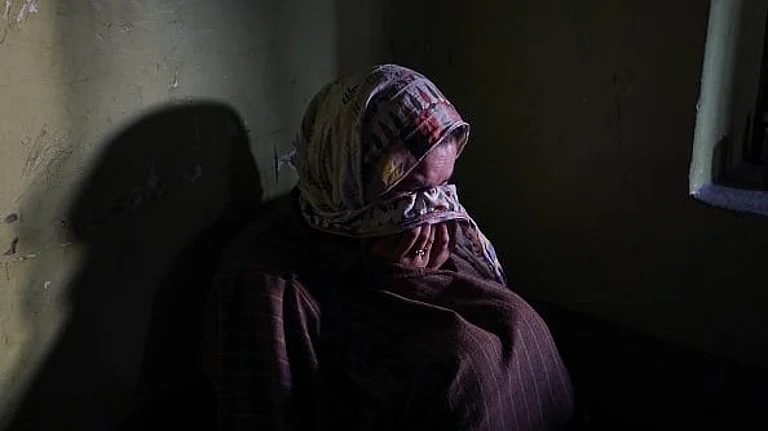This story is not about Banaras, or the ghaats and chaat, it’s about Dhanushdhari.
I first met Dhanushdhari in 2019, just a couple of months before the lockdown.
I have never met anyone so madly in love with the city they are born in.
Banaras Diary
This story is not about Banaras, or the ghaats and chaat, it’s about Dhanushdhari, an ordinary man with child-like enthusiasm and a charming smile.
Of Stories and Storyteller
The plan was to have tamatar chaat at the famous Kashi Chaat Bhandar, situated en route Dashashwamedh ghaat. There was a catch, though. From the chowk where we were standing, all we could see was a sea of people. It was time for the Ganga aarti, on the left were people queued up to enter the Kashi Vishwanath temple through the brand-new corridor, on the right were people taking Ganesh idols for immersion and joining the festivities were those who were winding up Eid celebrations.
Looking at our anxious faces, Dhanushdhari, the person who was driving us around, took charge of the situation. The four of us formed a human chain, with him leading. He literally dragged us for about 700 metres in the direction of the chaat shop, while also giving us live commentary on the ancient lanes and decades-old hole-in-the-wall shops.
The piping hot chaat blew our brains, so he took us to a famous thandai shop. He insisted we add just a little bit of bhaang to it. “Lamba chalna hai, takaat milegi,” he said. He also slipped in the secret behind his happy married life. “Sometimes, when my wife fights with me, I give her a barfi laced with bhaang. She laughs a lot and goes off to sleep. The next day, everything is perfect!”
We went ghaat hopping. While crossing the Kashi Vishwanath temple, he narrated how ancient temples and old shops were demolished to build the corridor, which upset the locals. When we reached Dashashwamedh ghaat, several boats were lined up near the submerged steps of the ghaat, but the boatmen were missing. “The water level of the Ganga is rising every year, rendering them jobless,” he said. At Scindia ghaat, while sipping on black masala chai, he shared his views on “Trump-wa”, “Modi-ya” and the trade war. “Roz do akhbaar padhta hu,” said Dhanushdhari proudly. At Darbangha ghaat, he discussed Banaras’ parking woes, modernisation and mindless road widening projects. At our last stop, the Manikarnika ghaat, as multiple funeral pyres burnt in the backdrop of the Sun melting in the Ganga, a very philosophical Dhanushdhari said: “Yahi antim satya hai.”
That’s Dhanushdhari for you—a pure soul and a genius storyteller. This story is not about Banaras, or the ghaats and chaat, it’s about him. Because we must celebrate ordinary men, especially in an age when everybody is trying to be somebody. The stories he tells are passed on from one generation to the next; the old-school style. They keep tumbling out, effortlessly, like how the Ganga flows in Banaras. Pepper it with his impeccable sense of humour, amiable personality, child-like enthusiasm and charming smile. He goes on and on, but it never gets too much. He breathes Banaras. I have never met anyone so madly in love with the city they are born in.
Memories and Nostalgia
I first met Dhanushdhari in 2019, just a couple of months before the lockdown. A colleague shared his number. I loved the name, so I finalised him. He managed the rest. Not only was he extremely helpful, well-informed and punctual, he also told us multiple stories—about the mythological importance of Banaras, the Ganga and the various ghaats, the temples, the churches, the lanes, the by lanes, the shops and the eateries. He lovingly fed us all the famous street delicacies and, of course, the Banarasi paan. Banaras was magical, but it was Dhanushdhari’s stories that made the trip memorable. When he dropped us at the Varanasi railway station on that rainy afternoon, we were sad. So was he.
We fondly remembered him and his stories over the next few months when we were locked up in our homes. Years passed, the world opened up. We went to new destinations; made new memories. But I diligently gave Dhanushdhari’s number to all those who were visiting Banaras. They would give my reference and he would nod. But I wasn’t sure if he actually remembered me.
For our recent Banaras trip, I insisted on hiring him. It had been six years. Will he recognise me? He did, after I gave him some references from the last trip. He remembered my “rangeen” eyes, and that my father did something in the field of antariksh—his reference to ISRO. There were some more greys in his hair this time, but his child-like enthusiasm was intact; his storytelling skill was still top notch.
While departing, I gave him a small gift; a fridge magnet with “I Love Banaras” embossed on it. His eyes were moist. He said he will remember me. Always. I am not sure when I will go to Banaras next, or if he will remember me, but I shall be grateful to him for reaffirming my faith in the old-school way of connecting with people—human to human, heart to heart.
Swati Subhedar is a Senior Associate Editor at Outlook.
The article appeared in the Outlook Magazine's October 1, 2025, issue Nepal GenZ Sets Boundaries as 'Banaras Diary'

